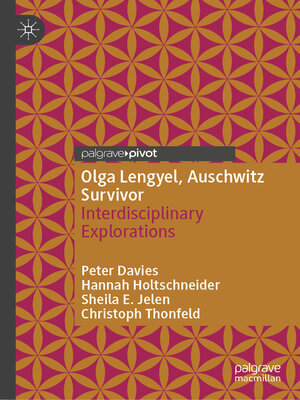
Sign up to save your library
With an OverDrive account, you can save your favorite libraries for at-a-glance information about availability. Find out more about OverDrive accounts.
Find this title in Libby, the library reading app by OverDrive.



Search for a digital library with this title
Title found at these libraries:
| Library Name | Distance |
|---|---|
| Loading... |
This book arises out of a long series of conversations about one of the most intriguing, but still under-researched, aspects of testimony: how the remembering and telling of an individual Holocaust survivor changes through time, through shifting contexts and with increasing age. It comes at this issue from an interdisciplinary perspective, not with the intention to develop a synthetic method but to explore how different perspectives overlap, conflict with or complement each other. It sets its definition of 'testimony statement' very broadly, treating published texts, video testimonies, and fragmentary statements and publications as of equal interest, without a hierarchy of value. The book focuses on Olga Lengyel (1908-2001). She wrote a memoir about her imprisonment in Auschwitz, first published in French in 1946, which was translated into English with modifications in 1947, and, half a century later, in 1998, she gave video testimony for the USC Shoah Foundation's Visual History Archive. Her testimony is well known enough to have gained a public profile and to have attracted some scholarly attention, but is not 'canonical'. Her work is internationally known, having been translated and received in a number of languages, and having been an inspiration for William Styron's bestseller Sophie's Choice. This book provides a condensed critical resource on Lengyel's testimonies, addressing matters of historical veracity, of trauma, of gender, of memory, and of genre in the transmission and reception of Holocaust testimonies over time and across cultures.







